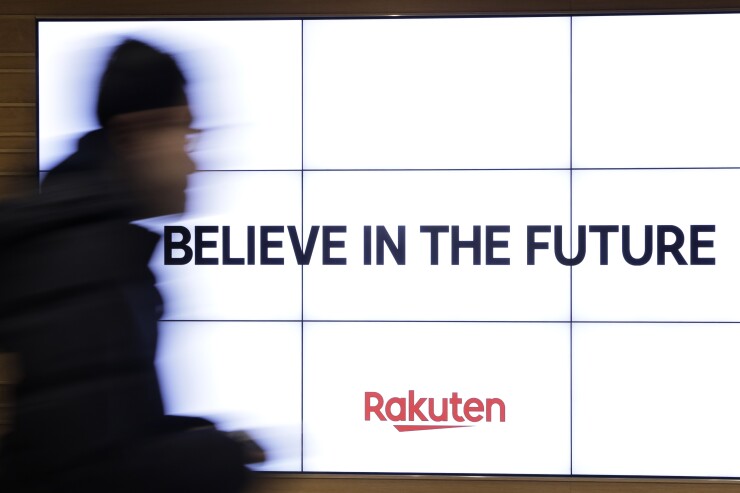Want unlimited access to top ideas and insights?

The Japanese conglomerate, which specializes in e-commerce, technology and financial services, applied to the NCUA for a credit union charter on May 15 and rescinded its submission just a few months later on Sept. 5, as confirmed by an agency spokesperson. The NCUA offered no further details.
This was Rakuten's fourth attempt to become a licensed financial institution in the U.S. Executives of the tech giant explained in a July 2019
ILCs, which are state-chartered, FDIC-insured depositories, have long been a point of contention among the financial services industry, with many
Credit unions differ from ILCs in numerous ways, including ownership type, the overseeing regulatory agency, membership eligibility and general mission.
The company
Shawn Roberts, head of corporate communications for Rakuten International, stated that Rakuten will "continue to explore options for providing valuable financial rewards to our members in the U.S.," but declined to provide any further comment.
Over the past three years, the certification process has seen organizations such as
Regulators with the FDIC
But industry experts worry that even with the changes, corporations would still exert influence over the direction of the financial institution and would unfairly blur the lines between commerce and banking, said Mickey Marshall, assistant vice president and regulatory counsel for the Independent Community Bankers of America.
"Executives with the ILC always make the argument of having separate management, but at the end of the day you know who your parent company is and what their incentives are. … So, I don't think there's really a good way to get around that conflict of interest that is so obviously there," Marshall said.
Since ILCs aren't classified as banks under the
"There wouldn't be the same kind of monitoring of financial health and the ability of commercial parents to serve as a source of strength in the event of a liquidation as there would be with traditional bank holding companies," Marshall said.
While
Adam Rust, senior policy advisor for the National Community Reinvestment Coalition, emphasized that the disparity in
"The precedent that would have been set for approval as either an ILC or as a credit union would have been problematic. … They're two very different ways of defining a financial institution, and the idea that [Rakuten] could somehow apply for both is also alarming and seems disingenuous," Rust said.
With
"I think we're better off with a banking system where banking is banking and commerce is commerce and the two don't overlap," Rust said.






